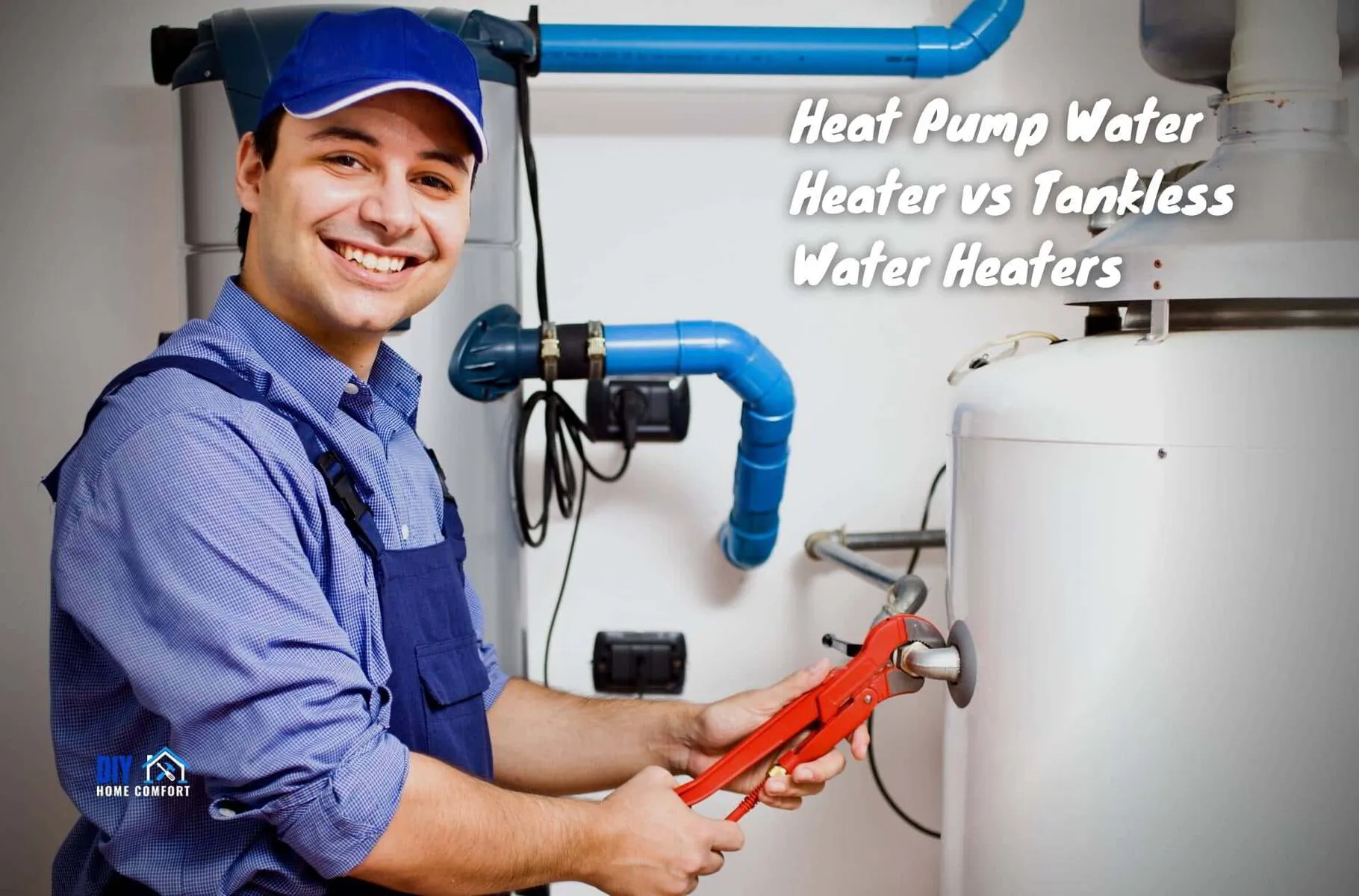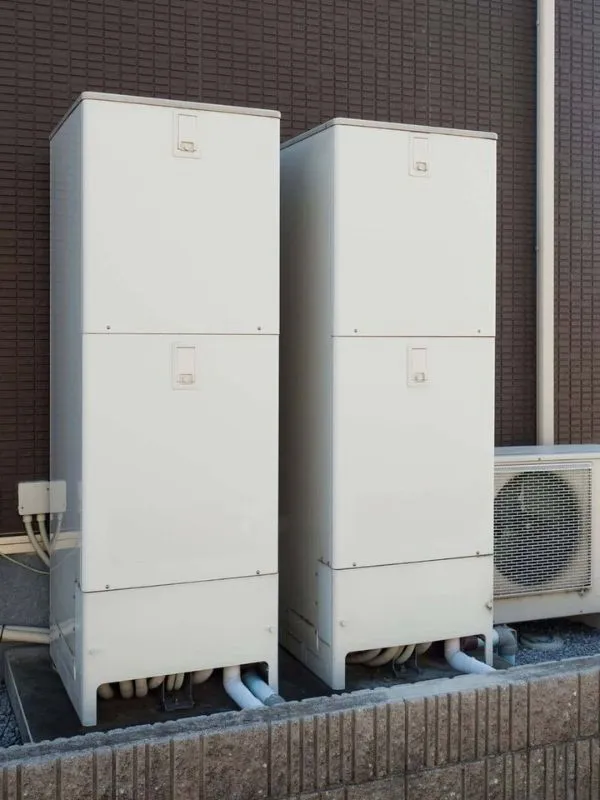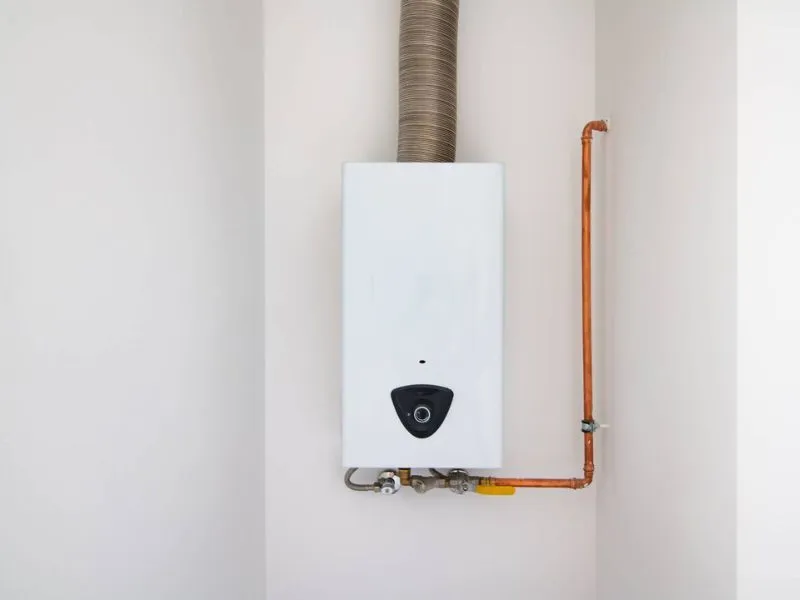Heat Pump Water Heaters vs. Tankless. Which One Will You Choose?
When creating a comfortable and energy-efficient home, the kind of water heater you select can make a significant impact.
Two of the most popular models on the market today are heat pump water heaters and traditional tankless water heaters.
Deciding between the two can be a difficult choice because each possesses its particular advantages and disadvantages.
In this article, we'll explore how both types of water heating systems work and their respective pros and cons.
By the end, you should have all the resources you need to make an informed decision about which type of system is best for your family's needs.
💧 Benefits of a Heat Pump Water Heater
Heat pump water heaters utilize technology that extracts energy from the ambient air in the home and converts it into heating energy to heat water, while tankless water heaters are smaller units that supply hot water on demand without a storage tank.
Heat pump heaters are also commonly referred to as hybrid water heaters.
Heat pumps have significantly higher Energy Factor (EF) ratings than traditional tankless water heaters, which translates to lower utility bills for homeowners who opt for this type of appliance.
Additionally, because these appliances run on electricity rather than natural gas or oil, they produce fewer emissions than other heaters, resulting in a lower carbon footprint.
In addition to being more affordable and environmentally friendly than other options on the market today, new technological developments have made these appliances quieter, easier to install and maintain, and more reliable overall.
As such, many people are opting for this newer type of water heater over traditional tankless models when making their next purchase.
Related Reading: Heat Pump Water Heaters Pros and Cons!
Cost Savings Due to Energy Efficiency
Heat pump water heaters provide the highest energy efficiency available in today's market.
This is because these appliances consume less energy for a given amount of hot water than traditional tankless water heaters, and their EF ratings are significantly higher.
As a result, users can save money on their monthly heating bills compared to using an older model of a tankless heater.
Tax Incentives for Installations of Hybrid Water Heaters
Many states and local governments offer tax incentives for installing hybrid water heaters.
These incentives are designed to reduce the initial cost of installation and also encourage people to use more energy-efficient systems.
By taking advantage of these incentives, homeowners can save money on their purchases and enjoy reduced utility bills, as highlighted above.
Additionally, some utility companies offer rebate programs that help offset the cost of installation and usage.
✅ PRO TIP: The current heat pump water heater tax credit in the US is 30% of project cost up to a maximum amount of $2,000.
This tax credit is effective for products purchased and installed between January 1, 2023, and December 31, 2032. (Energy Star)
Lower Carbon Footprint With Reduced Emissions
Heat pump water heaters offer an environmentally-friendly solution to hot water needs.
Because these appliances run on electricity, they produce fewer emissions than other heaters, resulting in a lower carbon footprint.
By opting for a heat pump water heater over a traditional tankless model, homeowners and business owners can do their part to reduce their environmental impact and be kinder to the planet.
This greener option benefits the environment and provides users with cost savings due to its energy-efficient qualities.
Ultimately, this appliance is becoming increasingly popular for economic and ecological reasons.
Quieter Operation Than Traditional Tankless Water Heaters
Heat pump water heaters are much quieter than traditional tankless water heaters, making them ideal for homes that prefer a more peaceful atmosphere.
These appliances run significantly quieter and with less vibration than older models of tankless heaters, which can be uncomfortable — especially in small or enclosed spaces.
With its whisper-quiet operation, the heat pump water heater offers a reliable and unobtrusive solution to all your hot water needs.
Drawbacks of Heat Pump Water Heaters
Heat pump water heaters are an excellent option for certain homes, but they do have their drawbacks.
These appliances can be pretty bulky and require a great deal of space to install — a drawback for many households with limited square footage.
Additionally, these models run at low temperatures, which can be problematic if your home requires high-temperature hot water, such as radiant heating systems or dishwashers.
Lastly, while they offer more efficient energy-saving properties than traditional tankless water heaters, they come with a higher initial cost.
Ultimately, it's important to weigh all these factors when deciding whether or not a heat pump water heater is right for you.
💧 Benefits of a Tankless Water Heater
When deciding between a tankless water heater or a heat pump water heater, it's worth considering a few factors.
A natural gas water heater offer an advantage in size, requiring less space to install than heat pump water heaters.
Additionally, they offer high operating temperatures, which are sometimes necessary for specific uses like dishwashers and radiant heating systems.
Ultimately, the type of system best suited for your household depends on your individual needs and budget.
Continuous Hot Water On Demand
Tankless units provide hot water on demand without a tank taking up valuable space.
This system offers several advantages, including really hot water available whenever you need it.
Additionally, these systems have better energy efficiency than traditional tank storage solutions, as they only heat the amount needed at any given time.
These models also have a long lifespan and require much less maintenance than alternative storage methods. Furthermore, they come in various sizes to fit almost any household setup and budget.
Longer Lifespan and Less Maintenance
Tankless water heaters have a much longer lifespan than traditional tank storage solutions, often lasting up to 20 years.
In addition, these systems require much less maintenance than other types of water heaters, as they don't use tanks that can accumulate sediment and other debris that needs to be cleaned out periodically.
This makes them an ideal system for households looking for a low-maintenance solution that will last for many years.
Cons of Tankless Water Heaters
Tankless water heaters provide hot water on demand without needing a tank as is the case with storage tank water heaters, making them much more space-efficient.
However, compared to heat pumps, they require a higher initial cost for installation and are not as energy efficient.
Additionally, tankless systems may not be able to handle the peak demands of multiple fixtures running simultaneously, leading to hot water shortages in some cases.
This is definitely something you need to consider if you have a large family, or if you have teenage daughters...
The lower flow rate of tankless systems can also be an issue for households with high hot water needs.
💧 Finally!
In conclusion, when deciding which hot water system is best for your home, it is important to consider both the pros and cons of heat pumps and tankless water heaters.
Heat pump heaters offer excellent energy efficiency but are more expensive and have a lower flow rate than tankless ones.
On the other hand, tankless water heaters provide hot water on demand without needing tanks – making them much more space-efficient – yet require little maintenance and have a long lifespan.
Ultimately, the right choice for you will depend on the individual needs of your household and budget.
Scott Harding
Scott is the main author of DIY Home Comfort. He's also an experienced HVAC technician that enjoys home renovation and spending time with his family. You can find out more about him here.




